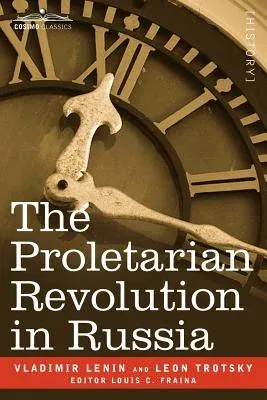The Proletarian Revolution in Russia is an amalgamation of writings by
Vladimir Lenin and Leon Trotsky, edited and supplemented by political
writer and activist Louis Fraina. Originally published one year after
the February Revolution in 1917, this book details the rocky start of
socialism and Marxism in Russia. With text comprised of first-hand
recollections and analysis, Fraina aims to show the public the passion
and conviction behind this fledgling socioeconomic system. VLADIMIR
ILYICH LENIN (1870-1924) was a Russian political theorist, politician,
and Communist revolutionary who served as the Premier of the Soviet
Union from 1922 to 1924. Lenin was a Marxist whose own theories sparked
a movement, Leninism, which eventually combined to create
Marxism-Leninism. His participation in anti-Tsar protests resulted in
his dismissal from college and his exile from Russia for several years.
When he returned in 1917, he played a key role in the October
Revolution, which was the catalyst for the establishment of the Soviet
Union in 1922. Lenin was a powerful speaker and influentual politician;
his theories led to many different schools of thought after his death,
including Stalinism, Trotskyism, and Maoism. LEON TROTSKY (1879-1940)
was a Soviet politician, Marxist revolutionary and theorist, and founder
and first leader of the Red Army. Trotsky joined the Bolshevik faction
of the Russian Social Democratic Labor Party in 1917, before the October
Revolution. He was the People's Commisary for Foreign Affairs in the
early days of the Soviet Union before starting the Red Army. Because of
this, Trotsky was a major leader in the Bolshevik victory in the Russian
Civil War (1918-1920). After Stalin's rise to power, Trotsky was
deported and removed from the Communist Party. He exiled to Mexico,
where he was assassinated, and opposed Stalinism with ideas based on
Marxism-Leninism, eventually forming the Trotskyism Marxist ideaologies.


